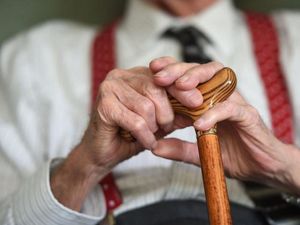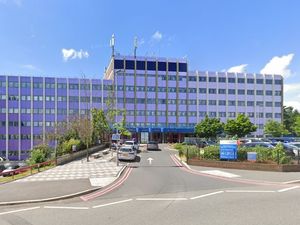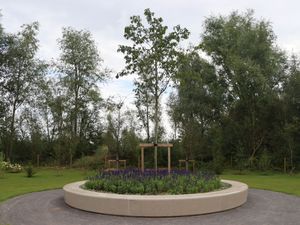Elderly patients in Wolverhampton may be missing out on free healthcare
Elderly patients in Wolverhampton could be potentially missing out on free healthcare after analysis suggested people in the city were among the least likely to receive support.

Wolverhampton has had one of the lowest rates for Continuing Healthcare (CHC), where the cost of ongoing care is covered by the NHS, in the country.
Figures showed that CHC is a postcode lottery, with people with complex needs living in Salford seven times more likely to be accepted for free healthcare than those in Wolverhampton, in what has been labelled a "national scandal" by a leading campaigner.
It suggests people in the city may be being denied free healthcare when others elsewhere are receiving it, forcing them to pay for it instead.
CHC is funded by local Clinical Commissioning Groups (CCG), which decide whether or not someone is eligible to receive free healthcare, depending on their medical needs. It is often used to support people with conditions such as dementia and Parkinson's.
Wolverhampton CCG said it had "not been identified as an outlier" in terms of how many people are allocated funding, adding numbers eligible "vary month to month". But figures consistently showed the CCG's rate as lower than many others.
National CHC rules state any patient with a significant health problem should have their care and nursing fees paid in full by the NHS, provided their condition is the main reason they need help rather than just being frail or elderly. This is different from means-tested adult social care, which is funded by local councils.
But data showed wild discrepancies between CCGs across the country, suggesting the system is not fair across the board.
According to figures for 2019/20, 32 people per 50,000 in Wolverhampton received CHC. This put the city in the bottom 13 in the country, and compared to 211 per 50,000 in Salford at the top end of the scale.
There were also big differences in neighbouring areas, with Cannock Chase and Stafford and Surrounds CCGs towards the top of the list with 133 and 128 per 50,000 respectively. The national average in 2019/20 was 59.
Dudley was also at the higher end on 106. Walsall's figure was 60 and Sandwell's 52.
Experts say the 2019/20 figures present the most accurate picture as it may have since been skewed by coronavirus.
The differences between levels of support have led to accusations some CCGs are avoiding funding healthcare in order to protect budgets.
The former head of Britain's nuclear deterrent, Rear Admiral Philip Mathias, is launching legal action against the Government over the issue. He believes up to 10,000 people are being unlawfully denied CHC each year.
Pat McFadden, MP for Wolverhampton South East, said the disparities were "unfair" and called for an "examination" of the funding process.
The Labour MP said: "Disparities in funding like this seem very unfair to patients who understandably expect similar levels of care and access to treatment in what is a National Health Service. Hopefully these figures will prompt an examination of these disparities by the local CCG. There is no reason why someone in Wolverhampton should have less access to this kind of continuing healthcare compared with someone elsewhere in the country.”
Sally Roberts, chief nurse at Black Country and West Birmingham CCGs said: “Wolverhampton CCG is fully compliant with the requirements of The National Framework. Individuals are assessed and provided with the appropriate care to meet their needs.
"WCCG is not identified as an outlier on the number of individuals found eligible or on spend by NHS England England and Improvement.”





